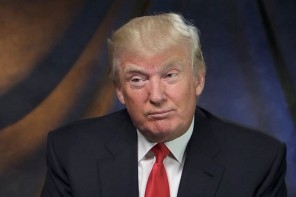Even as the disaster in the Gulf continues to unfold, so do our efforts to understand how and why it happened. But while concerns over environmental degradation and the billions in lost revenue occupy much of the news, the question of responsibility remains central. And who is responsible? Who is to blame? Unfortunately, the two most popular interpretations offer little help. They do, however, provide useful illustrations of the kind of thinking that helped create the crisis in the first place and they also suggest a deeper interpretation in light of faith in God.
The first interpretation I will call a version of the ‘Great Man’ theory of history. As the label suggests, this theory assumes that history is made by powerful personalities (or in this case, corporations). There is a wide consensus that BP and its outgoing leader, Tony Hayward, are to blame. Not only is BP thought to be ultimately responsible for the spill, but also for the spill’s becoming a full-blown crisis with devastating longterm consequences.
In our frustration, however, we aren’t content with merely one villain. Mr. Obama has become Mr. Hayward’s accomplice, not really at fault, just standing by. Many of the president’s critics are frustrated because no matter how much they rant and rave, they can’t seem to cause him to do the same. How can he maintain such self-control, they seem to ask, when he has lost all control of the situation?
Taking responsibility and assigning blame offer a sense of control on our part; despite the spill, we tell ourselves, we remain productively at work determining who is at fault and who should now take charge. There’s something delusional at work in this busyness, however. To be sure, blaming BP and Obama does perform the work of a morality play by highlighting the vices of the central players.
The problem is that focusing on these two “giants” allows us to neglect some of the less obvious causes that remain hidden under the assumptions that BP and Obama exercise absolute control. Nothing could be farther from the truth. For weeks now, in fact, we’ve witnessed their lack of control. Our questioning, then, should shift to why; why aren’t they in control?
It Just Happened
This brings us to the second interpretation of the oil spill, what I’ll call the ‘Act of God’ theory borrowed from Texas Governor Rick Perry, who boldly suggested that the spill might have been an “act of God.” I suspect that he invoked God in the conventional manner that lawyers often do in discussing insurance claims—to point to something beyond human control; the term “accident” might have worked as well, which is what Rand Paul later suggested.
If the Great Man theory is somewhat distorting, the Act of God theory is utterly self-deluding. Both Perry and Paul adhere to a form of libertarianism that places a strong emphasis on individual responsibility. Their political agenda is to free individuals from what they see as the burdensome, even oppressive, control of government by lowering taxes and decreasing government spending and regulation.
The cruel irony is that the spill appears to have been caused in part by the lack of tough independent government regulation. Such regulation might have required that a relief well be dug, as is the case in Canada. Such added “burdens” now appear to be sensible safeguards, given the catastrophic threat posed by the ongoing spill. And who will ensure that BP actually cleans up its mess? The federal government, of course. In coordination with many partners, it is the ultimate guarantor that BP will make good on its promise to restore environments, businesses, and individuals.
There’s a second irony to the “accidents happen” interpretation; that this is precisely what the libertarian theory of Paul and Perry seems to deny about individuals. If someone is poor, it seems to follow necessarily that she is to blame or at least that she alone is responsible. The same is true if someone is ill. The poor and the ill are responsible—we are told—for using the means available in the market. Government’s only role is to free the market; aid to individuals only makes them dependent on government. Missing is any talk of accidents, of debilitating diseases, or of whole industries disappearing. Gone is the sense that life is often subject to forces beyond one’s control.
What are we to make of the apparent fact that talk of accidents and life’s contingencies should be reserved for multinational corporations? Are we really to believe that it is the BPs of the world who are most vulnerable?
Yet another irony is that the Act of God theory would help one of the world’s most powerful corporate entities evade its responsibility—morally if not legally. To hide from the bright light of criticism behind the robes of God, if you will, is a cynical use of sacred language and beliefs. Moreover, it is deeply ironic in that we live in a technological age obsessed with control; indeed, it is hard to imagine a more controlling business than that of the oil industry. In our high-tech age, we have reduced God to a God of the gaps—a God invoked to explain gaps in our knowledge, like those seemingly random events that lie outside our patterns of understanding.
Of course, the God of the gaps reigns in modern hearts and minds for a reason. With the rise of science and technology supernatural notions of God have been forced to retreat to the margins of knowledge. As our understanding of the world expands, the realm of God appears to shrink. The same is true with the oil spill. What at first might appear an inexplicable accident—an act of God—becomes, upon further investigation, an outcome of a series of events.
All Are Responsible
But where is God in all this? Isn’t it just such a time as this that even skeptics would welcome a benevolent and powerful God? Yet God has not intervened to prevent or stop the flow of oil. Indeed, God seems just as powerless as the rest of us.
Paradoxically, it may be God’s lack of power that revives us. One might imagine that if God is powerless, then God suffers along with us, and even with the poor miserable creatures poisoned by the oil.
Whether God suffers with us is a theological question of the knottiest kind; the images of suffering evoke not only sympathy but a sense of judgment and perhaps even guilt that someone is to blame for the suffering of the innocents. Writing during the Second World War, theologian H. Richard Niebuhr interpreted the cross of Christ as a symbol of God’s judgment that falls not on the innocent but on those who cause the suffering of the innocent—on all those who cause the crucifixion of the innocent, irrespective of position or privilege.
In the case of the oil spill, there have surely been wrongs on the part of CEO Hayward and President Obama. Both have failed to treat oil exploration with the seriousness it deserves. In the case of BP (and the other corporations involved) this failure may rise to the level of criminal negligence. We mustn’t forget that eleven workers lost their lives to what appears to be, at its base, corporate greed, pride, and sloth.
The president’s case points out that not all sins are of equal moral weight. He appears to have failed to press for regulatory reform at key governmental agencies. Not to mention the fact that the Minerals Management Service inherited by the president had, according to Rolling Stone’s Tim Dickinson, retained “industry-friendly regulations drafted during the Bush years.” The lack of strong, independent regulation made it possible for BP to become the monstrosity it has.
That’s the easy part. The hard part is considering that judgment does not end safely with BP and Obama. Transcendent judgment continues all the way down to me. I too am guilty. Why do I say this? Well, one only needs to ask why it was that Obama did not act more swiftly to reform the federal agencies responsible for regulating oil exploration. Here one returns to the recent history of suspicion of all government regulation, to the chants of “Drill, Baby, Drill!”
But the guilt runs deeper than George W. Bush or Sarah Palin. It runs to all of us who have a hand, any hand, in the lack of strong, independent regulation. This is a long list with guilt flowing in multiple directions for everything from apathy to self-righteousness. Near the center of that motley crew are those of us whose lifestyles are dependent upon a ‘religious’ devotion to cheap oil.
The deepest irony of all is that BP, along with the other oil companies, has come to function as a god. The truth, buried beneath all the oil and punditry, is that our devotion to this false god has led to the suffering of innocents, in the oceans and beaches, in the marshes and ecosystems, and in our communities. We have been slow, too slow by far, to realize that the oil industry is an incorrigable profit center that cares little for the weak and vulnerable, be they of sea or land, animal or human. Even now, it remains a real question whether we have finally woken up from our dream of perpetually cheap oil, free of all cost, free of all sacrifice.
And yet the events in the Gulf call out for confession, for corporate confession and repentance. By corporate I mean BP, of course, but even more importantly I mean our society as a corporate whole. We must move beyond defensiveness and self-righteousness and work toward a cultural consensus that acknowledges the vital work of regulation, the dangerous nature of oil exploration, and the fragility of natural ecosystems. To build a consensus on these points is the work of repentance, whatever our sins, whatever our party, and whatever our position.



